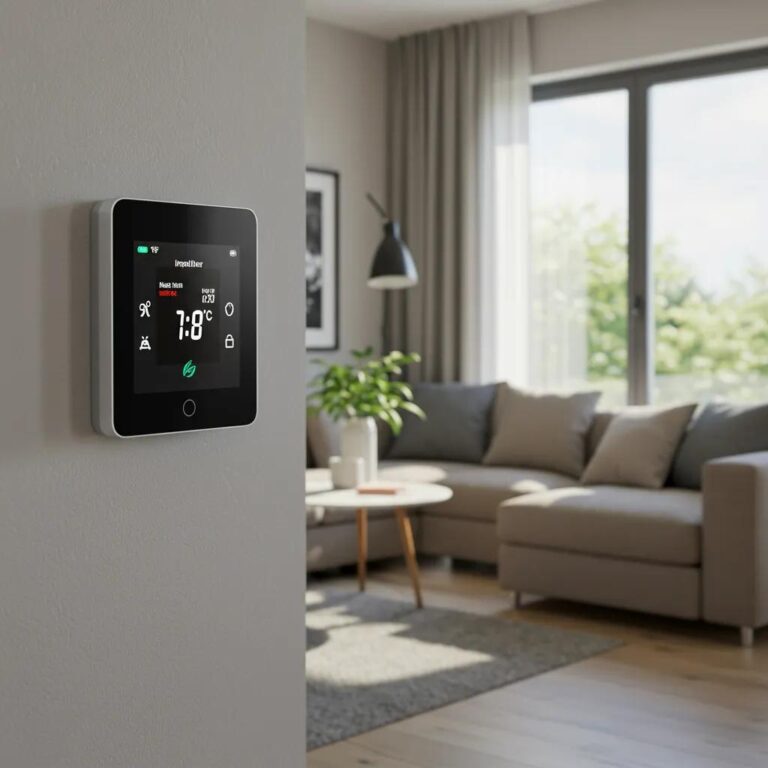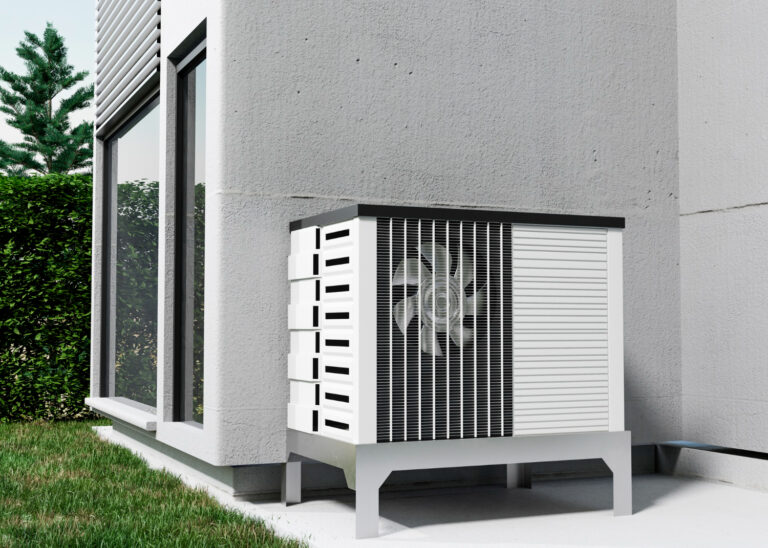AC Compressor Warning Signs in Your Bakersfield Home
In the middle of a Bakersfield summer, there’s one thing homeowners count on more than anything: a working air conditioning system. When something starts to go wrong, one of the most common issues is a failing AC compressor. The compressor plays a major role in keeping your indoor air cool, and when it starts to fail, your whole system can struggle or even stop working. Understanding the early signs of compressor trouble can help you avoid a total failure that might lead to an unexpected AC replacement in Bakersfield.
Because compressor problems don’t always show up all at once, homeowners often overlook the early warning signs. These signs might not be obvious right away, but they can quickly turn into major problems if ignored. If your AC seems to be struggling or making unusual sounds, it’s often best to act quickly. Ignoring the issue could make things worse and lead to more expensive fixes—or a full system replacement that could have been avoided with earlier attention.
Common AC Compressor Warning Signs
AC systems usually give off some early clues when the compressor isn’t working properly. If you’re familiar with what to look out for, you can respond before the problem grows worse. Listed below are some common warning signs Bakersfield homeowners might see or hear when their compressor is in trouble:
1. Unusual Noises
A healthy system should run fairly quietly. If you hear clanking, knocking, grinding, or loud humming, it could point to internal problems in the compressor motor or components shaking loose. These noises don’t fix themselves, and they often get worse over time.
2. Weak or Warm Airflow
If your AC is running, but the air blowing from your vents feels warm—or not nearly as cool as it used to—that’s another red flag. This often means the compressor is struggling to convert refrigerant to gas effectively, which weakens the cooling process.
3. Frequent Circuit Breaker Tripping
A hard-working compressor draws a lot of power, so when it’s malfunctioning, it can cause your circuit breaker to trip over and over. Constant resets without identifying the cause won’t solve anything. In some cases, a failing compressor is what’s overloading the circuit.
4. Leaks, Rust, or Damage
If you notice stains, pooled oil, or rust around your outdoor unit, the compressor could be failing or leaking refrigerant. Damaged seals or cracked lines connected to the compressor can cause problems that reduce system pressure and cooling capacity.
Spotting these warning signs early can make the difference between a basic repair and a full AC system replacement. For example, a Bakersfield homeowner reported hearing a loud thump every time their AC cycled down. Thinking it was just outdoor debris tapping the unit, they ignored it for weeks. It turned out the compressor mounts had failed, and the vibrations cracked other critical parts—leading to a full unit replacement that could have been avoided with earlier action.
What Causes AC Compressor Problems
A compressor issue doesn’t just happen without a reason. It’s usually the result of one or more common conditions, many of which can be avoided with regular check-ups and care. Understanding what causes these issues can help you reduce the chance of running into the same problems later on.
Here are the most common sources:
- Electrical Problems
Bad wiring or a damaged capacitor can block the flow of power, making it hard for the compressor to start or stay running.
- Refrigerant Issues
Low refrigerant levels or leaks can force the compressor to work harder than it should. Over time, that stress leads to burnout or mechanical failure.
- Dirty or Clogged Components
Coils covered in grime or air filters packed with dust restrict airflow. This affects the entire cooling process and can overwork the compressor as it tries to keep up with rising indoor temperatures.
- Normal Wear and Tear
Most systems wear down over time. If your AC is over 10 years old, the compressor may simply be reaching the end of its lifespan.
Regular system maintenance helps reduce these risks by catching small problems early. A full inspection of the electrical system, refrigerant pressure, and coils can go a long way toward extending the life of your compressor. Waiting until something breaks guarantees you’ll pay more later—sometimes way more.
Consequences of Ignoring Compressor Problems
When a compressor starts to fail and the early signs go unchecked, things usually take a turn for the worse pretty quickly. What might begin as a strange sound or slightly warm air can eventually leave your home hot and uncomfortable—with a system that either barely works or stops working altogether.
One of the most immediate effects is higher energy use. As the compressor struggles to do its job, it pulls more power to keep up. That means longer run times, uneven cooling, and a noticeable spike in your energy bill. You end up paying more for significantly less performance.
Beyond that, ignoring the issue can snowball into a full system failure. A worn-out or overheating compressor puts extra stress on other parts of the system, from the fan motor to the electrical components. Over time, this could cause a catastrophic breakdown that leaves no option but full AC replacement. And in a Bakersfield summer, when the heat peaks and demand is at its highest, finding immediate service becomes even harder and likely more expensive.
There are also safety risks involved. Compressors that overheat or short out can trigger repeated electrical surges. In some cases, they can burn up the wiring or even lead to fire hazards if neglected long enough. Your cooling system is meant to make your home safer and more comfortable—letting a major part of it fail does the exact opposite.
What to Do If You Notice Warning Signs
If you start to notice any of the earlier signs—strange noises, warm air, or a unit that keeps tripping breakers—the best thing to do is take action right away. Delaying usually costs more and puts extra pressure on your system.
Here’s what you should do if your AC compressor starts raising concerns:
1. Turn off the system immediately. If you keep it running, you risk doing more damage to internal parts. Switching it off gives you a chance to stop further wear.
2. Make note of what’s happening. Whether it’s a loud noise or reduced airflow, being able to explain the symptoms helps our technicians find the source faster.
3. Schedule a professional inspection. Our technicians can diagnose the issue, test the compressor, check refrigerant levels, and inspect electrical connections. Compressors aren’t DIY-friendly, and trying to fix it on your own could void warranties or make the problem worse.
4. Ask about a full system assessment. If your compressor is failing due to age or poor overall condition, it might be time to weigh the cost of repair versus replacement. In many Bakersfield homes, replacing the system also means better energy efficiency and fewer issues later on.
5. Plan for routine upkeep moving forward. Consistent checks and maintenance keep compressors healthy longer. It also helps you track shifting performance over time, making it easier to spot something off before the damage spreads.
One Bakersfield resident ran into this exact situation last August. After weeks of hearing a clicking noise when the unit would start up, they finally had it inspected. The technician found the contactor switch failing and refrigerant running low. If they had waited any longer, the compressor could have burned out. Instead, a repair took care of it, and their home stayed cool through the rest of the summer with no interruptions.
Ensuring a Cool Summer in Bakersfield
Living in Bakersfield means summers aren’t just warm—they’re intense. If your AC system is going to hold up, the compressor has to be in good shape. Early warning signs are the best chance you have to catch a problem before it becomes a major repair or full replacement. Homeowners who ignore those signs often face high costs and long waits during peak season. Acting early helps keep your system reliable when it matters most.
Whether your system is brand new, pushing ten years, or somewhere in between, it pays to stay aware of how it’s performing. Taking a proactive approach gives you peace of mind and helps your AC system stay efficient and dependable, especially during Bakersfield’s hottest months. Keeping track of noises, airflow, or any change in operation can save time, money, and frustration down the line.
For dependable cooling this summer, consider addressing these compressor issues as soon as they occur. If your system shows signs that may require AC replacement in Bakersfield, Greer’s Banner Air of Bakersfield, Inc. is here to help with reliable diagnostics and service. For a quick estimate or to book a service visit, please contact ustoday.






